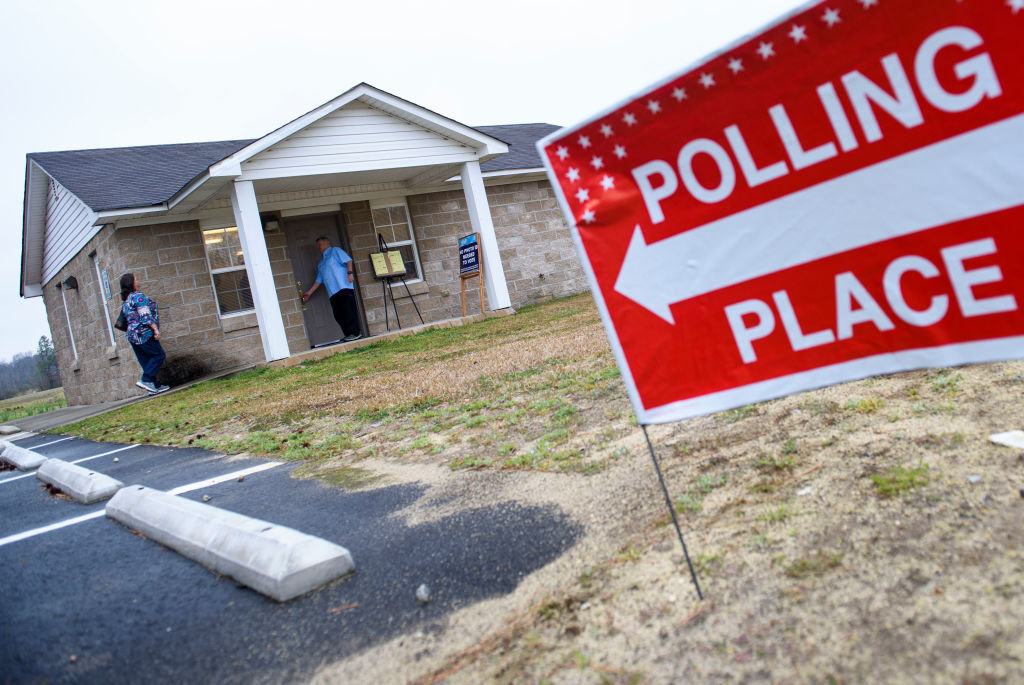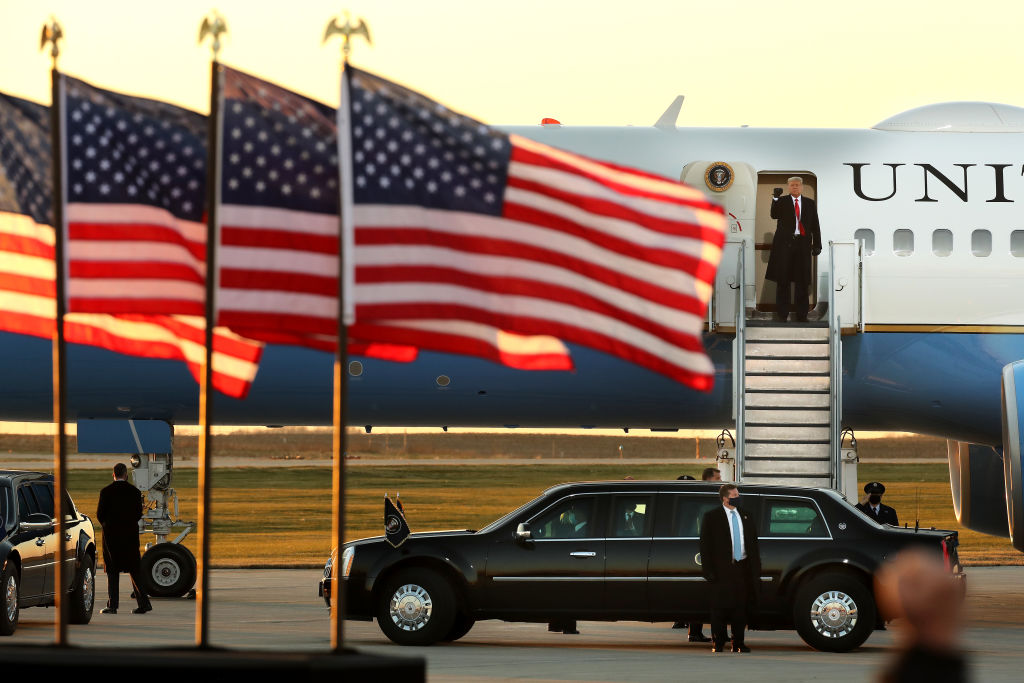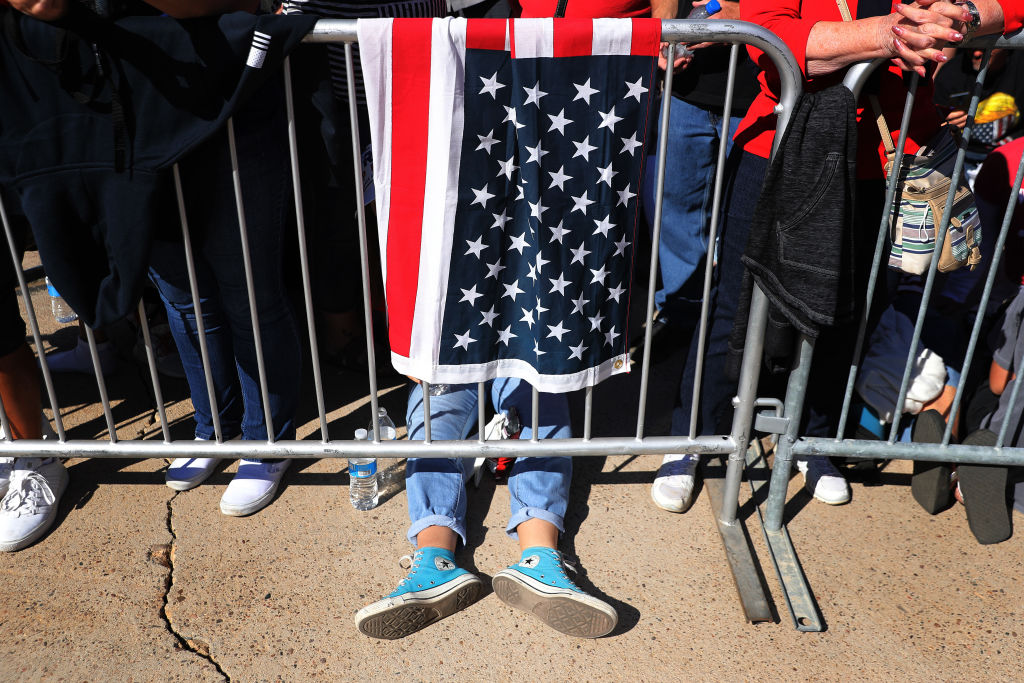Dontae Sharpe is coming up on the first anniversary of his exoneration. On August 22, 2019, the state of North Carolina admitted it had mistakenly imprisoned him for 24 years for a murder he didn’t commit — and refused to plead guilty to, no matter how many plea deals they offered him — and let him go.
“I walked out of the courtroom and looked up at the sky, and it looked different,” he says. “There’s free sky and there’s locked up sky, and I was looking up at the free one.”
Sharpe is 45, drawls like the woods-roaming “country boy” he says he is and has a lively voice that seems always on the verge of a laugh. He’s a man who loves to cook and says his first day out he ate chicken, fish, shrimp and steak. He wept when he held his grandchildren for the first time, and again when they called him “grandpa.”
Sharpe’s incarceration spanned four presidencies – Clinton, Bush, Obama and Trump – and in all that time the only voting he ever got to do concerned which show to watch on the sole TV in the common area, or which products and brands should be stocked in the commissary.
“The majority ruled,” he says with a chuckle.
Come this November Sharpe will cast his first ever ballot in a U.S. presidential election. He’s looking forward to it both as a delayed rite of passage of citizenship and adulthood, and as a marker of his reintegration into civic society.
“You want to have a say so, you want to participate and help make a change,” he says.
The restoration of his voting rights puts into acute focus the plight of nearly 70,000 North Carolinians who did their time but are barred from voting until they complete probation or parole. Even then they may not be “unconditionally discharged” as defined in the relevant statute. Under current law people who were charged, tried, convicted, imprisoned and released into community supervision have to settle up with the state on court costs and fees incurred all along the way (which have risen by 400 percent in the last two decades). They also have to pay parole and probation costs, which can be onerous, and though unconstitutional, nonpayment can be cause for rearrest. Out of 110 court observations conducted in Robeson County in 2017, a staggering 32 observations ended in an individual incarcerated for failure to pay fees and fines, according to a 2019 ACLU NC report on the topic.
6.1 million people are similarly disenfranchised nationwide, per the Sentencing Project. According to a 2018 Brookings Institute report: “After release, only 55 percent of former prisoners have any earnings and those that do tend to earn less than the earnings of a full-time job at the minimum wage. However, their labor market struggles start earlier, with similarly high rates of joblessness prior to incarceration and with most prisoners growing up in deep poverty.”
Sharpe says depriving a Black man of his vote for court fees stings.
“What does it feel like? To me, really, it’s taking away from us, another thing being denied us, because you know Black men, Black people as a whole, have been through a lot,” he says. “We’re still going through a lot.”
The money barrier is particularly of concern in the Black community because while African-Americans make up 22 percent of the voting population in North Carolina, they are 42 percent of the disenfranchised, with Blacks having a disenfranchisement rate 2.76 times higher than whites, according to Dr. Frank R. Baumgartner, who holds the Richard J. Richardson Distinguished Professorship in Political Science at the University of North Carolina at Chapel Hill. With July polling showing leads for Biden between 3 and 7 percentage points, the state’s 15 electors are very much in play, according to The Cook Political Report, which has designated North Carolina a toss-up state.
In 2016 researchers at Duke University in Durham found that when it comes to incarceration, race is the defining factor: poor white kids are less likely to go to jail than rich Black kids. This also applies to job market re-entry after incarceration: Two of the three studies funded by the National Institute for Justice analyzing job prospects for Black and white men found that “employers called back white ex-offenders at about the same rate as Blacks who reported no criminal record.”
One reason North Carolina tries to bill formerly incarcerated people is to finance the state's judicial system, which is chronically underfunded.
One reason North Carolina tries to bill formerly incarcerated people is to finance the state’s judicial system, which is chronically underfunded in the state budget, according to a 2017 North Carolina Poverty Research Fund report entitled Court Fines and Fees: Criminalizing Poverty in North Carolina. The courts function as collection agencies to fill their own coffers, and formerly incarcerated people are locked “into a cycle of punishment and debt from which they cannot escape.” Nonpayment draws penalties that “impose further charges and harsher sanctions for their non-compliance,” including disenfranchisement for up to five years, and even reincarceration.
Voting rights advocates say the fees function as a modern day “poll tax,” in effect requiring citizens to pay to vote. While historically it affected all poor people, the concept arose principally as a weapon in Jim Crow’s arsenal to quell a rising Black electorate during the Reconstruction Era. Poll taxes and literacy tests were tools of suppression of the Black vote, and according to the Smithsonian they hit their marks: “In Mississippi, fewer than 9,000 of the 147,000 voting-age African Americans were registered after 1890. In Louisiana, where more than 130,000 black voters had been registered in 1896, the number had plummeted to 1,342 by 1904.”
But earlier in North Carolina’s history, disenfranchisement was on the mind of white Southerners even before Blacks could vote. Omitted from the Smithsonian’s account is another more direct, extreme and far more inhumane method of disenfranchisement practiced in North Carolina – the whipping post. In his work on the history of disenfranchisement in North Carolina, Clemson University history professor Dr. Orville Vernon Burton came across an account in The National Anti-Slavery Standard (New York, N.Y.), January 5, 1867, about reports from military headquarters in Charleston and Raleigh describing a reign of terror in the fall of 1866:
‘in all country towns the whipping of negroes is being carried on extensively,’ with ‘the real motive’ being ‘to guard against their voting in the future, there being a law in North Carolina depriving those publicly whipped of the right to vote.’
More recently, there has been a spate of prosecutions of formerly incarcerated people in Hoke County (George Floyd’s birthplace). Unaware that they hadn’t been “unconditionally discharged,” they voted in an election, and are now being charged with one or more Class I felonies, which carry a recommended term of 19 months’ imprisonment.
Hoke County has recently seen a spate of prosecutions of formerly incarcerated people who voted while on felony probation.
When someone leaves the North Carolina prison system they’re given a discharge folder, with a single tri-folded pamphlet on the topic of voting rights. It warns:
Any attempt to register to vote while you are an active felon is a felony. However, after completing all the terms of your sentence (including parole, probation, and restitution), you do not have to do anything to have your citizenship rights restored. Those rights are automatically restored (N.C. Gen. Stat.13-1). Registering to vote, again or for the first time, is all you will need to do before voting in the county where you reside after your discharge.
Whitley Carpenter and Daryl Atkinson, attorneys at Forward Justice, where Sharpe is a R.I.S.E. Leadership Fellow, have stepped up to represent six individuals and three nonprofits – Community Success Initiative, Justice Served NC, and the North Carolina Chapter of the NAACP – in a lawsuit to overturn this statute. They say it is a relic of 19th century white supremacism, not unlike the Confederate statues Gov. Roy Cooper ordered removed on June 20, declaring, “Monuments to white supremacy don’t belong in places of allegiance.”
Forward Justice’s tagline is “Change the South, change the nation.” They aim to do that as a nonpartisan law, policy and strategy center in Durham dedicated to advancing racial, social and economic justice in the U.S. South. They were part of the legal team that pursued and won Sharpe’s exoneration; they provide legal services to the National Poor People’s Campaign; and are part of the NC Second Chance Alliance, which is helping Sharpe get his erroneous record expunged and get registered to vote.
The plaintiffs aim to dismantle the structures of racism that allow these fees to be imposed in the first place and prevent further extraction of resources from the community. Lawyers at Protect Democracy and Arnold & Porter are also on the collaborative legal team. In an email to Capital & Main, Carpenter explained why North Carolina needs to join the list of states that have amended or overturned their felony disenfranchisement laws. She wrote:
“Many prosecutors have interpreted this as a strict liability crime, meaning no intent to break the law is required. This new surge in voter prosecutions discourages directly impacted people from wanting to vote, out of a fear of being criminally prosecuted again. This is unproductive and many times instills a fear of voting that is harmful to the larger community.”
"This new surge in voter prosecutions discourages directly impacted people from wanting to vote, out of a fear of being criminally prosecuted again.”
Whitley Carpenter, attorney at Forward Justice
The complaint, filed in November 2019, will be heard on August 19 in Wake County Superior Court. It says the statute violates the state constitution’s Free Elections, Equal Protection, Freedom of Speech and Freedom of Assembly clauses, and the Ban on Property Qualifications clause. It is accompanied by three expert reports that offer a deep history on the statute itself, the demographics of the disenfranchised and the impacts of disenfranchisement on individuals, communities and elections. An amicus brief filed on July 24 by the Lawyers’ Committee for Civil Rights Under Law and the Southern Poverty Law Center says the statute “amplifies the hardship that the criminal justice system visits disproportionately among Black Americans; exacerbates stark racial disparities in income, wealth and economic opportunity; and unduly mutes the voices of Black North Carolinians in public affairs.”
Rev. Dr. T. Anthony Spearman, president of the NC NAACP, a plaintiff in the lawsuit, says that the litigation is not only meant to neutralize a voter suppression tactic that is a form of imprisonment without walls, but to urge the state toward fulfilling the promise of Reconstruction.
“From a moral perspective, the fact remains that this nation has already had two failed periods of reconstruction,” Rev. Spearman explains. “On the heels of the Civil War, and during the Civil Rights Era. Now, with the rise of the Movement for Black Lives, and in the wake of the police murder of George Floyd, we’re seeing the beginnings of the third reconstruction period. We hope it will succeed.”
Dontae Sharpe is happy to be in the fight.
“To try and help people, with the crooked system we got, to me that’s a blessing,” he says. “I didn’t know that until I really went through what I went through. But everybody needs help. Whether they know it or not. In some form or fashion. Everybody.”
Copyright 2020 Capital & Main





